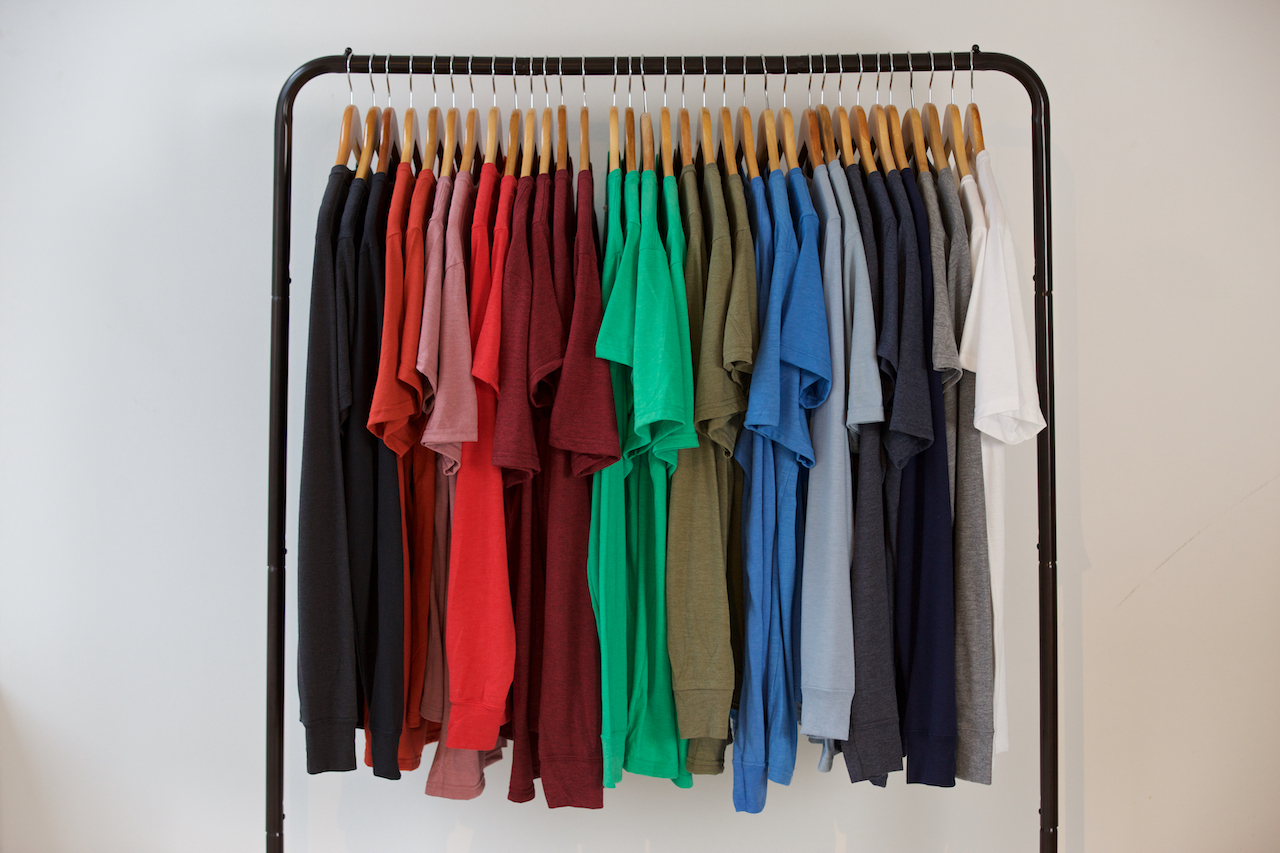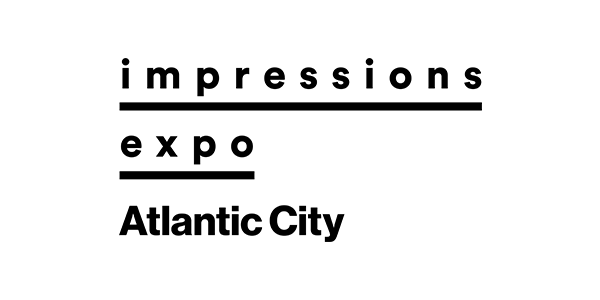The future of fashion isn’t a speck far off in the distance. It isn’t even just waiting around the corner. It’s already here. Despite inflated commerce and capricious market trends fluctuating on the daily, one thing will always be constant: the apparel industry consistently stays ahead of the game by cultivating cutting-edge technology and techniques racking up win after win.
The Cutting-Edge Blank Apparel
What is fascinating about the decorated apparel industry is the multitude of creative minds that come together to continue to break the mold and strive for achievements that permeate beyond the apparel sphere. Each new product introduces ripple effects through one company after the other, producing technological advancements that keeps the industry on its toes, ultimately trickling down to benefit the printers’ and consumers’ everyday life.
“We continue to invest in technologies such as automation combined with AI in order to optimize our processes and products, focusing on enhancing the quality, cost, and delivery,” says Titi Lin, senior designer, Fruit of the Loom, JERZEES and Russell Athletic.
Jorge Mejia, Fruit of the Loom’s senior director, process engineering and sample development, agrees, highlighting the JERZEES Eco Premium Blend Fleece as a high-density, three-end fleece made with recycled polyester. “This collection includes some of our first products utilizing recycled polyester and has already had a great debut in the market.”
HanesBrands is also focusing on revolutions to make industry printers’ jobs easier, helping them meet or exceed client expectations. “For us, it starts with high-quality, sustainably made apparel,” says Marcus Davis, product development manager, HanesBrands Printwear. “From there, we look for cutting-edge ways to create the best possible print surfaces and innovations to help printers save time and money.”

Pocket Me’s unique style of T-shirts allows for endless design possibilities. Photo courtesy of Pocket Me
The company recently introduced its breakthrough PrintNOW technology, shaping up to be a game-changing advancement in direct-to-garment (DTG) printing, which makes their new Hanes Perfect Pre-treat Tee conveniently ready-to-print right out of the box.
“PrintNOW technology eliminates human error, as the treatment is already evenly applied across the entire garment surface—front, back and sleeves,” Davis says. “It trims approximately three minutes per shirt from the traditional DTG process, so you can see how that time-savings adds up.”
Products like PrintNOW can also reduce overhead costs associated with pre-treating, allowing printers to scale their output volume and grow their businesses whether it’s a two-person shop or a larger print-on-demand business.
Other companies such as Pocket Me and their customizable pocket shirts have honed in on the consumers’ desire for creative freedom.
“Cutting-edge offerings from us are not as much about the styles/fabrics of the pocket shirts we offer, but instead are all about the new and innovative ways Pocket Me decorates pocket T-shirts and polos for our customers,” explains Spiro Demetriadi, Pocket Me co-founder.
The company’s slogan screams originality—”We go where no pocket shirt has gone before, where your pocket is your billboard!” And a walking billboard it is as the company specializes in decorating pocket T-Shirts and Polos directly on the pocket, as well as above the pocket and/or any place on a shirt. “We can do what we do because we decorate the pockets separately first and then sew pockets onto a decorated shirt,” Demetriadi says. This new approach opens a whole new world for wholesale, catering to decorators and graphic artists alike.

Infinity Her’s Evolve design conceals the ponytail opening when you wear your hair down, transforming the Cassie into a regular cap without an awkward gap. Photo courtesy of Infinity Her
The hat sector is also making waves when it comes to cutting-edge tech. Flexfit has capitalized its top sellers’ latest trends featuring the Flexfit NU line, which takes the original fitted cap’s Flexfit tech and updates it with what the company calls its Cool & Dry technology, resulting in a stylish twist on the firm’s iconic original style. The Nu line also is built “perfectly to be a seamless base for embroidery.” Specifically, the front panel has been completely redesigned to only use the necessary amount of fabric allowing for flatter and smoother embellishments on the company’s most streamlined silhouette to date.
Infinity Her, a new female-centric hat line from Infinity Product Group (IPG), is designed specifically for women, featuring two patented technologies: Evolve and Elude. Evolve includes a hidden ponytail feature offering the option of an opening for a secure high ponytail while still having the appearance of a regular cap when the hair is worn down. As for Elude, it includes a patent-pending, makeup-resistant sweat band that also is breathable and wicking.
Sustainability and Blank Apparel
With each passing year, it is evident that at the core of the industry’s mission is the desire to make a substantial impact when it comes to preserving our planet, now and for the future.
For Lane Seven’s part, this is where the company’s new Future Fleece hoodie comes into play. The hoodie is made from yarn composed entirely of post-consumer waste, as well as scraps left over from the cutting stage of the garment manufacturing process.

Allmade’s cut and sew factory employs solar panels on its rooftops. The company also partners with a sugar cane factory in Honduras that turns sugarcane into renewable energy. Photo courtesy of Allmade
“Cutting edge is really all about finding new ways to increase sustainability, making it a more approachable product from both a price and printing standpoint,” says Milissa Gibson, Lane Seven Apparel sales director. “One thing we are doing at Lane Seven is eliminate any green washing. We can talk about the kind of cotton we’re using, which does make a difference in pesticides and avoiding an environmental risk, but really manufacturing can be the most wasteful part of the entire development.
“Specifically with water. We want to be aware of what we’re eliminating, particularly through the dying process. How is that water coming out? Since the yarn used in Future Fleece is repurposed, the material forgoes the dying stage, reducing water consumption by approximately 75 percent. This type of transparency is an important part of the sustainability story.”
Companies like Allmade and Toasty Hemp Co. are also emerging leaders within the field of transparency.
“Since Allmade’s conception, we have pushed the boundaries to make better products for the planet that decorate beautifully,” says Laurel Hudson, Allmade Apparel communications director. “One of our newest fabrics is a 100-percent Recycled CVC that is made from 50-percent recycled cotton scraps from our cutting room floor and 50-percent recycled plastic (about six recycled water bottles per shirt). Because we collect T-shirt scraps of similar color, we don’t need to re-dye these tees, which means we are saving water and energy.”
Maybe surprising to some, but the apparel industry is the third largest contaminating industry in the world. Allmade is currently working hard to do their part in helping the industry move further down that list.
“We take water bottles that are landfill or ocean bound and turn them into recycled poly,” Hudson explains. “We use organic cotton in almost all our products. If it’s not organic cotton, then it’s recycled T-shirt cotton scraps from the cutting room floor. We also have a Mineral Dyed Tee that is dyed with earth’s natural pigments. Because of our partnership with SanMar, we can work with their product development team to create these new fabrics with our planet in mind.”

Toasty Hemp provides an affordable option for likeminded customers curious about hemp clothing. Photo courtesy of Toasty Hemp Co.
Similarly, Ryan Zaczynski, Toasty Hemp Co. founder, says that “cutting-edge” for his company goes beyond just achieving “peak performance” from a material—it’s also finding ways to achieve peak performance by using the most sustainable and environmentally friendly inputs possible.
“We fell in love with hemp because it naturally possesses many desirable performance attributes,” Zaczynski says. “From exceptional strength and durability to its naturally antimicrobial and thermoregulating properties, hemp’s natural capabilities rival those of fully synthetic and chemically treated materials.”
According to Zaczynski, the 80-plus-year prohibition of industrial hemp stifled nearly all U.S.-based research and development of hemp textiles. “We’re extremely excited to introduce a whole new generation of products and R&D, beginning with the NEW HEMP, our hemp and recycled poly blends. Given that we’re still at the very early stages of rebuilding the industrial hemp textile industry here in the USA, it’s a challenging endeavor with high initial costs and a steep learning curve.”
Along with some key partnerships, this challenge isn’t one Toasty Hemp Co. is afraid to tackle. Zaczynski says the company has brought in high-level talent from Nike to aid in design and material choices, selecting the company’s signature hemp and recycled poly blend specifically due to its super soft feel and strength. “It’s unlike anything else on the market, and we’re here to make it accessible to the masses.”
Toasty Hemp Co. also is the first blank apparel manufacturer that’s partnered with Milan-based Certilogo, a worldwide leader in garment authentication. Through this partnership, every Toasty garment is assigned a unique physical and digital identity (a QR code tag that links to a digital ID). This ID enables the company to authenticate specific production runs of garments for full supply chain traceability, while customers also receive information about their garment including access to warranty benefits. The innovation even allows Toast to run circularity campaigns where the company can buy back clothing that’s no longer in customers’ active wear rotation.
“This technology opens up a whole new landscape for customer experiences that we believe will become a standard within the collectible and future vintage markets,” Zaczynski says.
The Power of Perseverance
Every single individual will leave an impact on our planet. A heavy realization the apparel industry is mindful of while working day-in and day-out to minimize its own environmental footprint. Through creativity, technological advancements and compassionate, mindful manufacturing methods, these companies, along with the broader industry, are actively doing their part to make products that offer a greater responsibility towards bettering our collective future.





